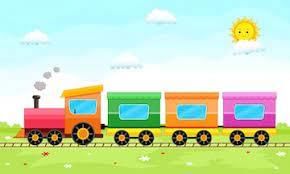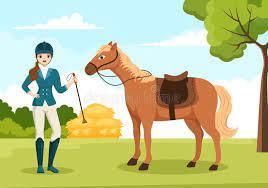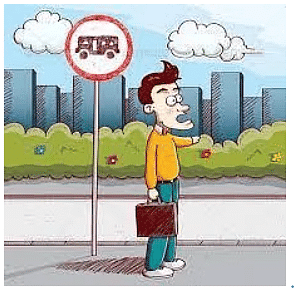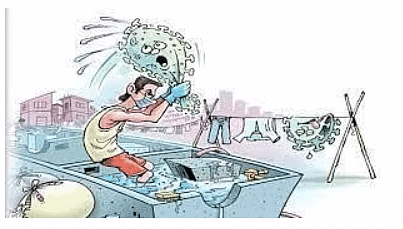Worksheet Solutions: From Here To There - 1 | EVS for Class 3 PDF Download
Q1: Fill in the Blanks.
(i) The given poem is an extract from the poem _______.
Ans: The given poem is an extract from the poem 'Railgadi'.
(ii) This poem is written by__________.
Ans: This poem is written by ‘Harendranath Chattopaddhya'.
(iii) On roads of iron we move______and_______.
Ans: On roads of iron we move to and fro.
(iv) The train passes riders riding on________.
Ans: The train passes riders riding on mares.
(v) The children are asked to blow their ________.
Ans: The children are asked to blow their whistles.
Q2: True or False.
(i) The children are invited to play a game.
Ans: The given statement is true.
(ii) The children are instructed to run outward but not in a line.
Ans: False, The correct statement is children are instructed to move in line and not to ran outward.
(iii) The trains move on usual roads.
Ans: False. The trains move on roads of iron.
(iv) The trains makes 'Chuk - Chuk' sound while it is on it's way.
Ans: The given statement is true.
(v) The train travels over the meadows and across the hills.
Ans: False. The train travels across the meadows and over the hills.
Q3: Answer the questions given below.
(i) What is understood by the statement 'Past aging farmers, temples, mills'?
Ans: This statement means that on its way the train crosses old and aged farmers working on lush green farms The train passes through village temples and crosses mills that are set up to produce flour by grinding grains.
(ii) What is meant by 'to and fro' in the context of this poem?
Ans: To and fro means that the train can move forwards and backwards in a flow easily.
(iii) Why do all the stations say 'Stop' every time?
Ans: When a train approaches a station it is supposed to slow down and stop at a station so that the passengers inside the train who wish to deboard the train at that station can do so safely and conveniently.
(iv) 'Village fairs, Riders on mares'. What is the figure of speech in this line?
Ans: Fairs and mares make a rhyming effect and hence the figure of speech used is rhyming.
(v) What does a broken wall in a lush green field convey?
Ans: It means that the train passes through fields which are wide and green but are not maintained and managed that is why the walls are broken and not repaired as found mostly in villages.
(vi) What is understood by ‘Puddles and Flocks’?
Ans: It means that the train passes through still water or rain water filled in pits and on the ground and also on its way the train comes across flocks or group of birds flying together in the open sky.
(vii) Why are the clouds described as being smoky?
Ans: On looking at clouds we can find that sometimes it resembles a patch of smoke with various shades or may be a soft cotton bed. It varies according to a person’s imagination. In this poem the poet has imagined the clouds as being smoky.
(viii) Why are the village huts clustered?
Ans: The people in villages live in huts that are very close to each other that is why they seem to be clustered.
(ix) What is meant by 'Riders on Mares'?
Ans: While travelling in a train one can find riders riding on a female horse called a mare on wide and open fields.
(x) What are Dhobi Ghats?
Ans: Dhobi ghat is a water body like a river, pond, or an aqueduct used by village people for washing clothes, taking bath, bathing cattle etc.

|
45 videos|182 docs|48 tests
|
FAQs on Worksheet Solutions: From Here To There - 1 - EVS for Class 3
| 1. How can I improve my reading skills? |  |
| 2. What are some effective strategies for time management during exams? |  |
| 3. How can I stay motivated while studying for exams? |  |
| 4. How can I manage exam stress effectively? |  |
| 5. How can I improve my writing skills for exams? |  |





















